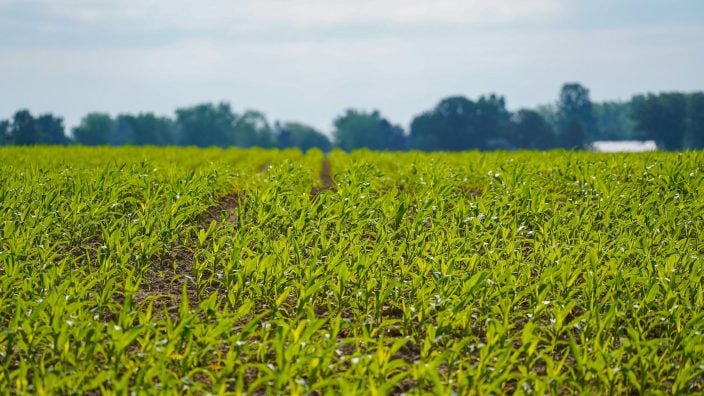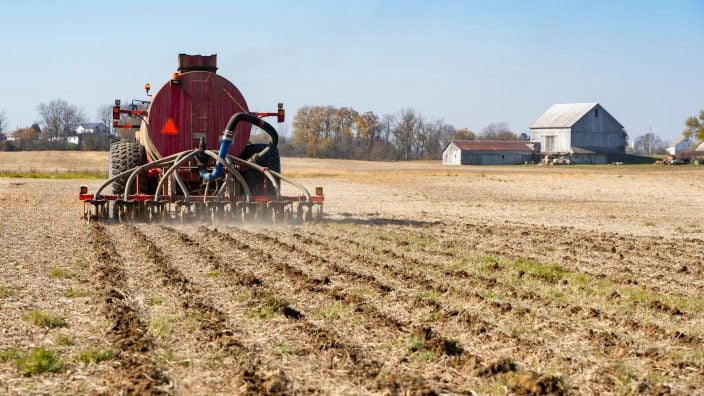Legal with Leah: The questions around data centers
Leah Curtis joins this Legal with Leah to talk about what data centers mean for local communities and how to stay engaged in the development process
Read MoreUpdate: As of Feb. 27, 2025, the Financial Crimes Enforcement Network announced they would not issue any fines or penalties or take enforcement action against companies based on failure to file or update beneficial ownership information reports by the March 21, 2025, deadline.
Update: As of Feb. 27, 2025, the Financial Crimes Enforcement Network announced they would not issue any fines or penalties or take enforcement action against companies based on failure to file or update beneficial ownership information reports by the March 21, 2025, deadline.
Update 12/27/24
An injunction was placed on the CTA requirements in December, which was lifted but then reinstated in the last week. Given the back and forth nature, those who have not yet filed but may need to should prepare the necessary information and be ready to file if the requirements would again be reinstated.
Under the Corporate Transparency Act, some new paperwork requirements are going to be handed to farmers. On this Legal with Leah, Ohio Farm Bureau Policy Counsel Leah Curtis talks about what these changes are and what they mean.
Listen to Legal with Leah, a podcast featuring Ohio Farm Bureau’s Policy Counsel Leah Curtis discussing topics impacting farmers and landowners.
Ty Higgins [00:00:00] Under the Corporate Transparency Act, some new paperwork requirements are going to be handed to farmers. On this Legal with Leah to talk about what these changes are and what they mean to Ohio Farm Bureau members, we bring in Leah Curtis, OFBF policy counsel.
Ty Higgins [00:00:16] What is the Corporate Transparency Act and why do farmers need to know about it?
Leah Curtis [00:00:21] This is an anti-money laundering law that was passed by Congress in 2020. And I do want to note that at the time of its passage, and as it worked its way through Congress, Farm Bureau did oppose this. We lobbied against it. However, it was supported, with very strong bipartisan support. So it did pass. And what the law does is it requires most businesses to report information about their beneficial owners, and the intent is to try to make it harder to illegally hide assets and commit financial crimes, particularly through the use of shell companies. So, most businesses, a lot of businesses, are going to be subject to this. There are some businesses, like highly regulated industries such as utilities or larger companies, they’re already reporting all this information under existing law. So they are exempt from this provision of the law.
Ty Higgins [00:01:09] So who needs to file under this law now?
Leah Curtis [00:01:12] Basically any business that was created by filing a document with the Secretary of State or similar office, is going to have to report. So, for example, if a farmer has an LLC or a partnership or corporation, they probably filed that business with the Secretary of State’s office in Ohio. And so your business is going to be subject. If the business was created prior to Jan. 1, 2024, so just this past January, then you’ll have until Jan. 1, 2025 to file. Any new businesses that are created in 2024 are going to have about a 90 day window to do that registration.
Ty Higgins [00:01:46] And what is it these businesses will have to report?
Leah Curtis [00:01:50] The law requires that they report, who are the beneficial owners. And beneficial beneficial owners are those people that have substantial control over a company, or they own 25% or more of the ownership interests of the company. So typically someone’s going to be a beneficial owner if they’re an important decision maker of the company. And then you’ll have some basic information: you’ll need to report name, address where the company was formed, meaning which state, the tax ID number, and then every beneficial owner, you’ll report their name, date of birth, address and some sort of identifying number from an accepted identification document. So like a passport or driver’s license and then a copy of that identification as well.
Ty Higgins [00:02:32] I know a lot of our members this time of year are saying more paperwork. When will these filings have to be made?
Leah Curtis [00:02:38] So again, you can begin filing this year, but you’re not going to be required to file until January 1 of 2025. And those filings are done on the Financial Crimes Enforcement Network website. And there are penalties if a business doesn’t file. So this is something we want people to start thinking about, even though your deadline isn’t until Jan. 1, 2025. You know, you are going to have to kind of work through this analysis. Who is it that you need to report, what do you need to report? So we want people to start thinking about it.
Ty Higgins [00:03:05] You mentioned that filing deadline is just under a year away. Could things change between now and then?
Leah Curtis [00:03:12] There’s always a possibility. I’m going to be a lawyer and say it depends. There’s a lot of significant concerns that have been raised about this law, kind of from across the country. And as always, there is litigation. So there is a lawsuit that is filed over this law. It is working its way through the court. And so there’s always a chance that something could change. In the meantime, either Congress changing the law or the lawsuit putting some sort of change or difference into how it’s going to go into effect. So that being said, there is still a deadline. And so we do want this on people’s radar and there’s a possibility nothing will change. So we want you to be aware of it and be able to prepare. And if there are changes, will certainly let everyone know and make sure that they’re updated on that.
Ohio State University Farm Office Bulletin explains who is subject to the new law and what it requires.


Leah Curtis joins this Legal with Leah to talk about what data centers mean for local communities and how to stay engaged in the development process
Read More

Ohio Farm Bureau advocated for a change in the law to allow family members and employees to handle pesticides while under the supervision of a licensed applicator. The rules around HB 10 are being finalized.
Read More

Four property tax reform bills were signed into Ohio law at the end of 2025. Ohio Farm Bureau Associate General Counsel Leah Curtis breaks down the bills and what the changes mean for Ohioans.
Read More

Learn what the requirements are to legally fly a drone in Ohio as well as steps the Ohio Legislature has taken in terms of security concerns.
Read More

In 2025, about 21 counties are going through a reappraisal or update, and because Ohioans pay taxes one year behind, they will see new property tax bills in January 2026.
Read More

Any unlicensed handlers who use restricted use pesticides will need to have additional training. Farm Bureau will be working on legislation to give employers a choice on how to provide training.
Read More

Current Agricultural Use Value is often discussed as a farmland preservation tool, but there are some other tools in the law that landowners can consider.
Read More

Update: As of Feb. 27, 2025, the Financial Crimes Enforcement Network announced no fines, penalties or enforcement action will be taken against companies based on failure to file or update BOI by March 21.
Read More

Update: As of Feb. 27, 2025, the Financial Crimes Enforcement Network announced they would not issue any fines or penalties or take enforcement action against companies based on failure to file or update beneficial ownership information reports by the March 21, 2025, deadline.
Read More

Update: As of Feb. 27, 2025, the Financial Crimes Enforcement Network announced they would not issue any fines or penalties or take enforcement action against companies based on failure to file or update beneficial ownership information reports by the March 21, 2025, deadline.
Read More